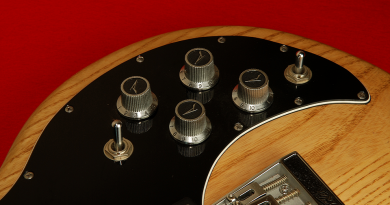Mastering Guitar Scales: A Beginner’s Guide to Navigating the Fretboard
Mastering Guitar Scales: A Beginner’s Guide to Navigating the Fretboard
As a beginner guitarist, one of the most important skills you can develop is the ability to navigate the fretboard using scales. Scales are the building blocks of music, and mastering them will not only improve your technique but also enhance your understanding of music theory. In this guide, we will walk you through the basics of guitar scales and provide tips on how to practice and master them effectively.
Understanding Guitar Scales
Before we dive into the practical aspects of learning scales, let’s first understand what they are. In simple terms, a scale is a series of notes arranged in a specific order and interval. Scales are the foundation of melody and harmony in music, and they provide a framework for improvisation and composition.
There are many different types of scales, but the most common one for guitarists is the major scale. The major scale is a seven-note scale with a specific pattern of whole and half steps. Once you understand the major scale, you can easily learn other scales such as the minor scale, pentatonic scale, and blues scale.
Practicing Guitar Scales
One of the best ways to practice scales is to start with a simple scale pattern and gradually increase the difficulty as you become more comfortable. Here are some tips on how to effectively practice guitar scales:
1. Start Slow: When learning a new scale, start by playing it slowly and accurately. Focus on hitting the right notes and maintaining a steady rhythm. Speed will come with practice, so don’t rush through the scale.
2. Use a Metronome: Practicing with a metronome is essential for developing a sense of timing and rhythm. Start with a slow tempo and gradually increase the speed as you become more confident.
3. Practice Regularly: Consistent practice is key to mastering any skill, including scales. Set aside dedicated time each day to practice scales, even if it’s just for a few minutes.
4. Focus on Technique: Pay attention to your hand positioning, finger placement, and picking technique while practicing scales. Proper technique will help you play scales smoothly and efficiently.
5. Play in Different Keys: Once you have mastered a scale in one key, practice playing it in different keys. This will help you become familiar with the entire fretboard and improve your understanding of music theory.
Mastering Guitar Scales
As you become more comfortable with playing scales, you can start focusing on mastering them. Here are some advanced tips to help you take your scale playing to the next level:
1. Learn Scale Patterns: Instead of just memorizing one scale pattern, learn multiple patterns for each scale. This will allow you to play the scale in different positions on the fretboard and increase your improvisational skills.
2. Experiment with Rhythm: Don’t just play scales in a straight, even rhythm. Experiment with different rhythms and accents to add variation and interest to your playing. This will also help you develop a sense of phrasing and musicality.
3. Combine Scales: Once you are comfortable with multiple scales, try combining them in your playing. Mixing different scales can create unique and interesting melodies that will set you apart as a guitarist.
4. Soloing: One of the ultimate goals of mastering scales is to be able to solo with confidence and creativity. Practice improvising over backing tracks or jamming with other musicians to develop your soloing skills.
5. Seek Feedback: Don’t be afraid to seek feedback from other guitarists or instructors. Getting input from others can help you identify areas for improvement and grow as a musician.
Conclusion
Mastering guitar scales is an essential skill for any guitarist, regardless of their style or level of experience. By understanding the basics of scales, practicing regularly, and focusing on mastering different techniques, you can enhance your playing and creativity on the instrument. Remember, mastering scales is a journey that requires dedication and perseverance, but the rewards are well worth the effort. So pick up your guitar, start practicing, and let the journey begin!






